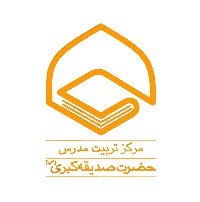عنوان: جایگاه مادری در اسلام و فمینیسم
نویسنده: فاطمه اکبری
رتبه: رتبه 1 در سیزدهمین جشنواره بانوی کرامت (برترین های حوزه های علمیه خواهران، برترین پژوهش سطح 3)
شایسته تقدیر در هفتمین جشنواره علامه حلی
واژگان کلیدی : مادری، فمینیسم، خانواده، مقام مادر
چکیده:
امروزه خانواده به عنوان اولین هسته و مهمترین زیر بنای تشکیل دهنده جامعه و در بردارنده کارکردهای مهم، به عنوان مبحثی مهم مطرح شده است؛ زیرا خانواده نهادی مقدس است که با سرنوشت تک تک مردم ارتباط داشته و عصاره و چکیده هر جامعه است. یکی از کارکردها و اهداف مهم خانواده تولید مثل و استمرار نسل بشر است؛ اما با تعاریف جدید ارائه شده از خانواده و تغییر کارکردهای اصلی آن، این نهاد دچار چالش شده و آشفتگی در روابط اجتماعی و تغییر نقش ها و الگوها، از جمله نقش «مادری» را در پی داشته است که صدمات وارد شده، قابل چشم پوشی نمی باشد. نقش مادری از موضوعات بحث برانگیز در حوزه مطالعات زنان است. در این باره از دیر باز دو نگاه متفاوت وجود داشته است. نخست، نگاه سنتی که با نگرش مثبت به نقش مادری آن را محدود خانه داری و بچه داری دانسته و رویکرد دوم که رویکرد غالب فمینیست هاست، مادری را برساخته ای اجتماعی می دانند که زمینه ساز ستم بر زنان شده است. از این رو دراین آشفته بازار رویکردها شناخت نگاه دین به نقش مادری و مقایسه آن با رویکرد فمینیستی، جامعه را در شناخت بهتر نقش مادری یاری می رساند. در رویکرد اسلام، مادری نقشی برجسته و تحسین برانگیز است و انگاره ای بسیار مثبت درباره آن وجود دارد. در این رویکرد مادر - هم به عنوان همسر و هم به عنوان عضوی از خانواده- ازیک سو از نقشی مهم در انسجام خانواده و برآورده کردن نیازهای آنان برخوردار است و از سوی دیگر در کانون محبت و احترام اعضای خانواده قرار دارد و هرکدام به نوعی باید جایگاه او را محترم شمرند. اما در رویکرد فمینیستی وحدت نظری درباره مادری وجود ندارد برخی با نگرشی مثبت اما مشروط به آن نگریسته اند و در برخی دیگر – به ويژه در نگاه رادیکالی آن- مادری نه تنها با انگاره ای مثبت روبرو نیست؛ بلکه به اتهام زمینه سازی برای استمرار ستم به زنان در طول تاریخ، در دادگاه فمینیستی محکوم است و گاه برخی از آنها خواستار محو و حذف نقش مادری هستند. بدون شک پی آمدهای پذیرش این دو نگاه در هستی خانواده و نقش ها و نوع روابط بین اعضای خانواده تاثیرگذار است. این تفاوت می تواند در اموری چون حجم خانواده، ساختار قدرت در خانواده، نقش های اعضا و اموری از این دست تاثیر متفاوت داشته باشد.
Abstract:
Today the family is discussed as the first core and the most important foundation of society formative and the containing of considerable functions as the significant topic, because the family is a valuable institution which is connected with the destiny of all the people and considered as the extract of any society. One of the main functions and aims of family is reproduction and the continuance of human generation; but this institution by new presented definitions of household and transformation of its main functions has suffered challenge and that is resulted in disorder in social relations and transformation of roles and patterns such as maternal role which these inflicted damages are not excusable. Maternal role is from controversial subjects in the field of women studies. Here there have been two different views from the past. Firstly, traditional sight which has positive attitude to maternal role considers it restricted to housekeeping and keeping child and the second one which is the predominant approach of feminism, know motherhood a social accommodation that is the basis of injustice on women. So, considering the different and contradictory approaches, the cognition of the view of religion to maternal role and its comparison with the feminism approach helps the society to understand the maternal role better. In Islam approach motherhood part is a prominent and praiseworthy role and there is a positive attitude about it. In this approach mother- both as wife and as a member of family- on the one hand possesses a considerable role in consolidation of family and the fulfilment of their needs and the other hand she is the center of respect and affection and should be respected by the other member of family. But in femenish approach there is not consensus about maternal role some have positive attitude but conditional to it . and - specially from the radicalism point of view- there isn’t a positive attitude to maternal but also maternal on acharge of preparation for continuation of injuslice to women during the is condemned by fomenism court . occasionally, some them demand the elimination of maternal role. Unoubtedly outcomes of these attitudes are effectiue on being of family, roles and kinds of relations between of the family members. Different views in motherhood position can have different effect on affairs like capacity of family, authority structure in family, parts of members and so on.
Key words: motherhood, family, mother position

